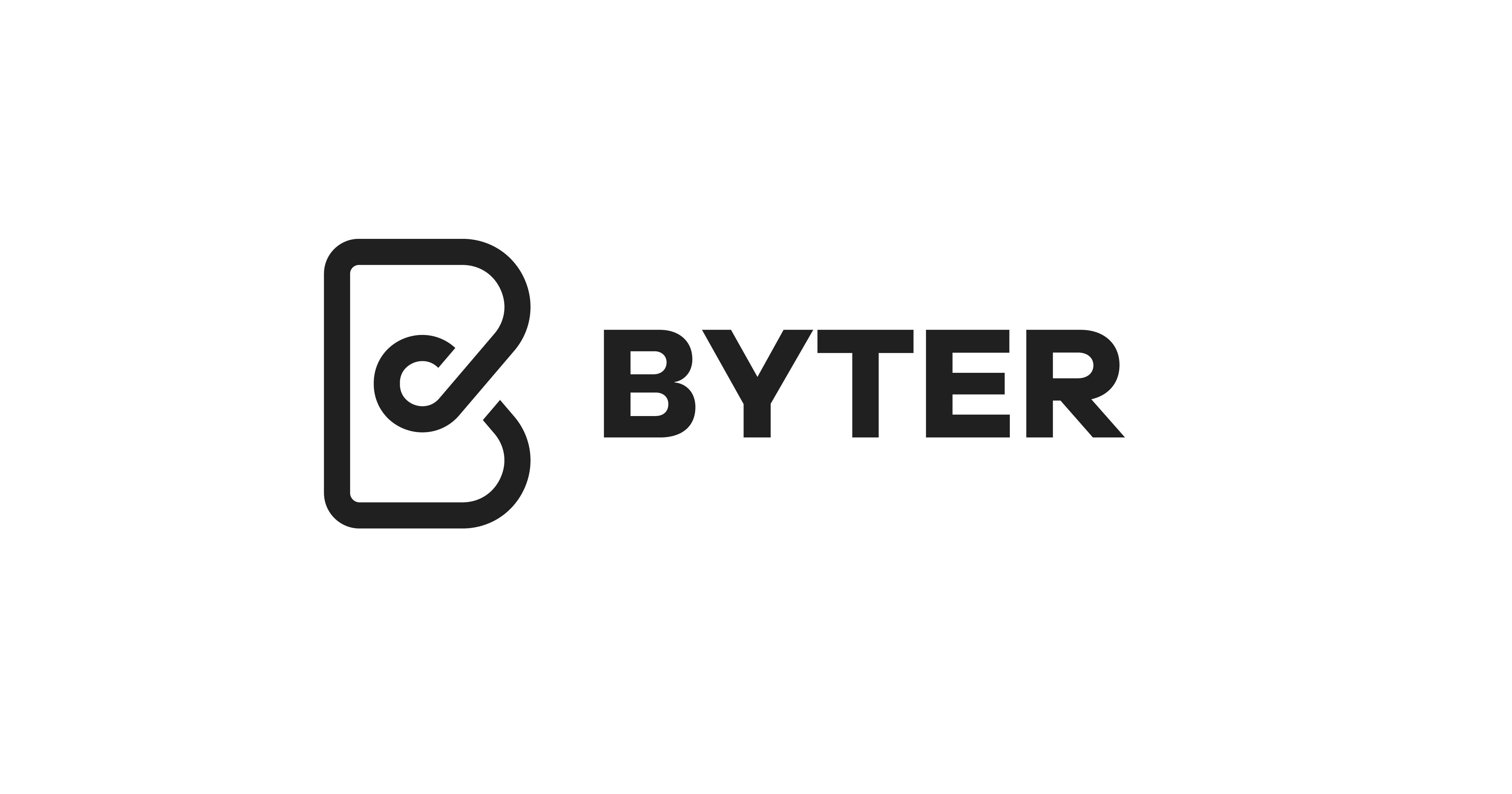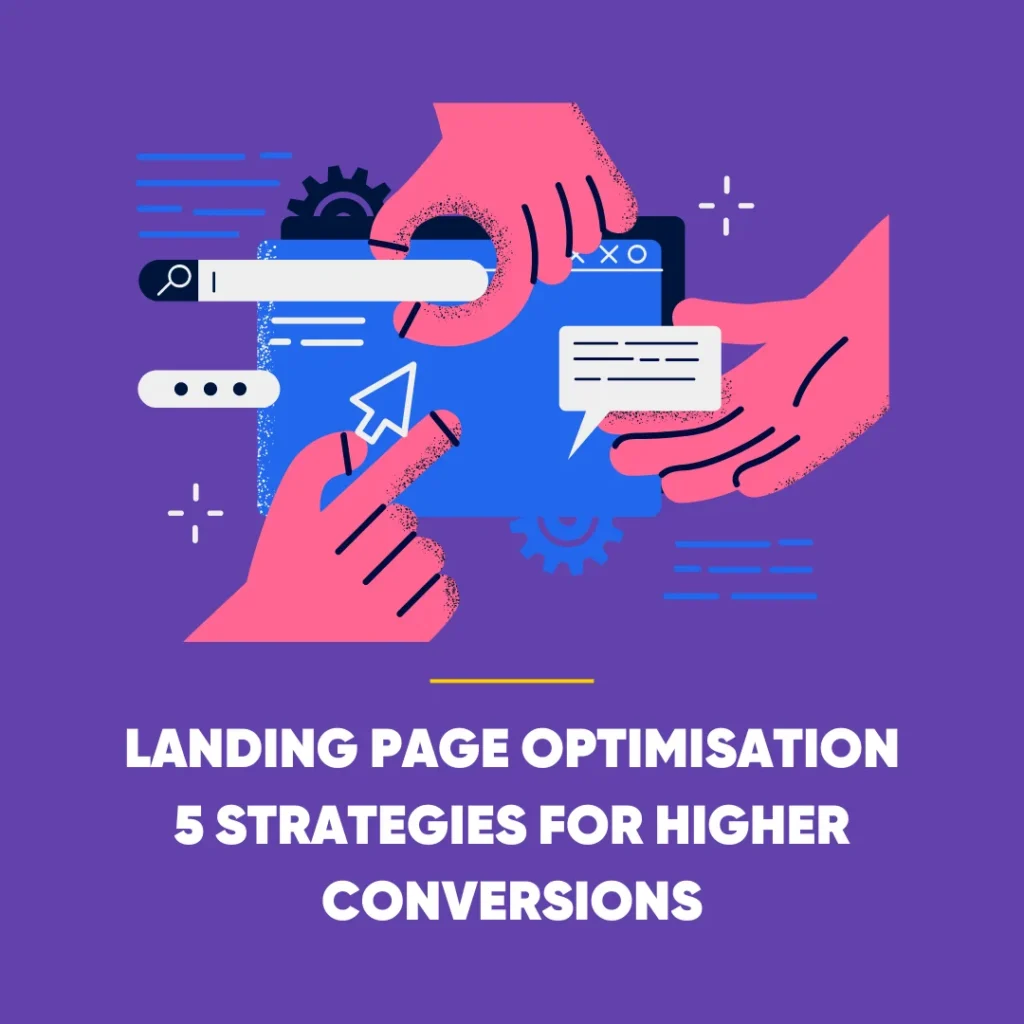Optimizing your website for search engines is of paramount importance in today’s digital landscape. By implementing effective website optimization techniques, you can enhance your website’s visibility, attract more organic traffic, and ultimately boost your online presence. In this article, we will explore the importance of optimizing your website for search engines and delve into the benefits of improved search engine rankings.
Optimize Your Website for Search: Understanding the Significance of Optimizing for Search Engines
When it comes to online visibility, search engines serve as the gateway to your website. By optimizing your website, you can improve its chances of appearing higher in search engine results pages (SERPs), increasing the likelihood of attracting relevant visitors. Furthermore, this not only generates more exposure for your business but also establishes credibility and trust among users. Moreover, search engine optimization (SEO) helps search engines understand the context and relevance of your website, making it easier for them to index and rank your pages.
Benefits of Improved Search Engine Rankings
- Increased Organic Traffic: Higher search engine rankings mean more visibility and exposure to potential visitors actively searching for products or services related to your niche. This increased organic traffic can result in more leads, conversions, and ultimately, revenue growth.
- Enhanced Brand Visibility: Securing top positions in SERPs significantly boosts your brand’s visibility. Users tend to perceive websites with top rankings as more trustworthy and authoritative, leading to increased brand recognition and recall.
- Targeted Audience Reach: Effective optimization strategies help you target specific keywords and phrases that align with your business offerings. This ensures that your website attracts relevant traffic, consisting of users who are actively looking for what you have to offer.
- Improved User Experience: Optimizing your website involves enhancing its overall user experience. By focusing on factors such as website speed, mobile responsiveness, and easy navigation, you provide a seamless browsing experience for your visitors, keeping them engaged and satisfied.
- Long-term Business Growth: Investing in SEO and achieving higher search engine rankings is a long-term strategy. Once you establish your website’s authority and credibility, it becomes easier to maintain and build upon your online presence, ensuring sustained growth and visibility.
Keyword Research
In addition, in the quest to optimize your website for search engines, conducting thorough keyword research is a crucial step. Furthermore, by identifying relevant and high-traffic keywords, you can gain valuable insights into user intent and preferences, thereby improving your website’s visibility and attracting targeted organic traffic. This piece will guide you through the process of conducting comprehensive keyword research, identifying relevant keywords, and utilizing powerful keyword research tools to gain valuable insights.
Optimize Your Website for Search: Performing Comprehensive Keyword Research for Enhanced Performance
Additionally, to effectively optimize your website, it is essential to conduct thorough keyword research. This involves exploring and analysing various keywords and phrases that are relevant to your industry, products, or services. In summary, by conducting comprehensive research, you can uncover the language and terms commonly used by your target audience, allowing you to align your website’s content and structure accordingly.
Identify Relevant and High-Traffic Keywords
Additionally, identifying relevant and high-traffic keywords is a key aspect of successful optimization. Look for keywords that are directly related to your business and have significant search volumes. In conclusion, by focusing on these keywords, you can attract users who are actively searching for products or services like yours, increasing the chances of conversions and business growth.
Utilize Keyword Research Tools for Insights
To streamline and enhance your keyword research efforts, leverage powerful keyword research tools. These tools provide valuable insights into search volume, keyword competition, and related keywords, allowing you to make data-driven decisions. Tools such as Google Keyword Planner, SEMrush, and Moz Keyword Explorer can help you identify new keyword opportunities and refine your optimization strategies.
By conducting thorough keyword research, identifying relevant and high-traffic keywords, and utilizing keyword research tools, you lay a solid foundation for effective website optimization. Understanding user intent and preferences enables you to tailor your content, meta tags, and overall website structure to align with what your target audience is searching for. All in all, embrace these tips and tools to boost your website’s visibility, attract targeted organic traffic, and ultimately enhance your online presence.
On-Page Optimization
In the realm of website optimization, on-page optimization is vital for boosting search engine rankings and improving user experience. By implementing effective on-page strategies, you can optimize page titles and meta descriptions, use header tags efficiently, naturally incorporate target keywords, improve website load speed, and ensure mobile-friendly design. This article will guide you through these key on-page optimization techniques for search engine success.
Optimize Page Titles and Meta Descriptions
Crafting compelling page titles and meta descriptions is essential for both search engines and users. By using concise and descriptive titles, you provide search engines with valuable information about your page’s content. Additionally, well-crafted meta descriptions act as a summary of your page, enticing users to click through from search engine results pages (SERPs).
Use Header Tags (H1, H2, etc.) Effectively
Header tags (H1, H2, etc.) are essential for organizing your content and improving its readability. By using header tags effectively, you provide a clear structure to your content, making it easier for search engines and users to navigate and understand the information presented.
Incorporate Target Keywords Naturally Within Content
Strategically incorporating target keywords within your content helps search engines understand the relevance of your web pages. However, it’s crucial to do this naturally and avoid keyword stuffing. Focus on creating high-quality, informative content that seamlessly integrates target keywords, providing value to both search engines and users.
Improve Website Load Speed
Website load speed is a critical factor in user experience and search engine rankings. Optimizing your website’s load speed involves minimizing file sizes, leveraging caching techniques, and optimizing server response times. By ensuring your website loads quickly, you create a positive user experience and increase the likelihood of higher search engine rankings.
Implement Mobile-Friendly Design and Responsiveness
With the increasing use of mobile devices, having a mobile-friendly website is imperative. Implementing a responsive design ensures your website adapts seamlessly to different screen sizes, providing a consistent and user-friendly experience across devices. Search engines prioritize mobile-friendly websites, making it essential for your optimization efforts.
By optimizing page titles and meta descriptions, using header tags effectively, incorporating target keywords naturally, improving website load speed, and implementing mobile-friendly design and responsiveness, you enhance both search engine visibility and user experience. Implement these on-page optimization strategies to give your website the best chance of ranking well and engaging your target audience effectively.
Quality Content
When it comes to optimizing your website for search engines, creating unique, informative, and engaging content is paramount. High-quality content not only attracts and engages users but also signals relevance and value to search engines. In this article, we will explore key strategies for creating exceptional content, ensuring proper formatting and structure, strategically incorporating relevant keywords, and incorporating multimedia elements for an enhanced user experience.
Create Unique, Informative, and Engaging Content
To stand out in the digital landscape, it is crucial to create content that is unique, informative, and engaging. Craft articles, blog posts, and web pages that provide valuable information, insights, and solutions to your target audience. By offering unique perspectives, practical tips, and compelling storytelling, you can capture the attention of both users and search engines.
Ensure Content is Well-Structured with Proper Formatting
Properly structuring and formatting your content is essential for readability and user experience. Organize your content using headings, subheadings, and bullet points to break down information into digestible chunks. Additionally, use appropriate font styles, sizes, and spacing to enhance readability and guide users through the content seamlessly.
Use Relevant Keywords Strategically Within the Content
Strategic use of relevant keywords is crucial for search engine optimization. Incorporate target keywords naturally throughout your content, including in headings, paragraphs, and meta tags. However, avoid keyword stuffing, as it can harm readability and user experience. Focus on creating valuable content that aligns with user intent while seamlessly integrating relevant keywords.
Include Multimedia Elements (Images, Videos, etc.) Where Appropriate
Enhance your content by incorporating multimedia elements such as images, videos, infographics, and interactive elements where relevant. Visual aids not only make your content more visually appealing but also improve user engagement and understanding. Ensure the multimedia elements are optimized for fast loading and provide descriptive alt text for accessibility and search engine optimization.
Link Building
Link building is a crucial component of website optimization, as it helps improve search engine rankings, increase website authority, and drive targeted traffic. In this article, we will explore key strategies for effective link building, including acquiring high-quality inbound links, seeking link opportunities from reputable and relevant websites, utilizing guest blogging and influencer partnerships, and monitoring and disavowing low-quality or spammy backlinks.
Focus on Acquiring High-Quality Inbound Links
High-quality inbound links are essential for building website credibility and authority. Aim to acquire links from reputable and relevant websites with strong domain authority. These links act as endorsements, indicating to search engines that your website is trustworthy and valuable.
Seek Link Opportunities from Reputable and Relevant Websites
When seeking link opportunities, prioritize reputable and relevant websites within your industry or niche. Look for websites that have a solid online presence, good reputation, and engaged audience. Seek opportunities for guest blogging, resource sharing, and collaborations that can result in valuable backlinks.
Utilize Guest Blogging and Influencer Partnerships for Link Building
Guest blogging and influencer partnerships are effective website optimization techniques for building links and expanding your reach. Contribute high-quality content to authoritative blogs and websites in exchange for backlinks. Collaborate with influencers or industry experts to create valuable content that attracts attention and generates natural links.
Optimize Your Website for Search: Monitoring and Disavowing Unwanted Backlinks for Enhanced Performance
Regularly monitor your backlink profile to identify low-quality or spammy backlinks. These can negatively impact your website’s credibility and search engine rankings. Use tools like Google Search Console or third-party backlink analysis tools to identify and disavow these undesirable links, signalling to search engines that you don’t endorse or associate with them.
Additionally, by focusing on acquiring high-quality inbound links, seeking link opportunities from reputable and relevant websites, utilizing guest blogging and influencer partnerships, and monitoring and disavowing low-quality or spammy backlinks, you can strengthen your website’s authority, improve search engine rankings, and attract targeted traffic. In summary, implement these strategies consistently and ethically to build a robust link profile and enhance your website’s visibility in the competitive digital landscape.
Technical SEO
On the other hand, o maximize your website’s visibility and performance in search engine rankings, it’s crucial to focus on optimizing website accessibility and indexability. By optimizing website navigation and URL structure, implementing XML sitemaps and robots.txt files, ensuring proper indexing of website pages, and resolving broken links and crawl errors, you can enhance user experience, improve search engine crawling efficiency, and increase the chances of your website being indexed and ranked effectively. This article explores key strategies for optimizing website accessibility and indexability.
Optimize Your Website for Search: Streamlining Navigation and URL Structure for Improved Performance
A well-structured and user-friendly website navigation system plays a vital role in enhancing user experience and facilitating search engine crawling. Organize your website’s navigation in a logical and intuitive manner, ensuring easy access to all important pages. Additionally, create clean and descriptive URL structures that incorporate relevant keywords, making it easier for search engines and users to understand the content of your web pages.
Optimize Your Website for Search: Implementing XML Sitemaps and Robots.txt Files for Enhanced Performance
Additionally, XML sitemaps serve as a roadmap for search engine crawlers, providing valuable information about the structure and hierarchy of your website. By creating and submitting XML sitemaps to search engines, you ensure that all important pages are discoverable and crawlable. Moreover, use a robots.txt file to guide search engine crawlers and specify which areas of your website should be indexed and which should be excluded.
Ensure Proper Indexing of Website Pages by Search Engines
Additionally, to ensure that search engines effectively index your website pages, avoid common indexing issues. Use proper canonical tags to specify the preferred version of a webpage, manage duplicate content effectively, and employ appropriate meta tags to signal to search engines how to index and display your web pages.
Optimize Your Website for Search: Addressing Broken Links and Resolving Crawl Errors for Seamless Performance
Broken links and crawl errors can hinder search engine crawling and harm user experience. For example, monitor your website regularly for these issues using tools like Google Search Console. In addition, fix broken links by updating or redirecting them to relevant pages. Resolve crawl errors by identifying and addressing issues that block search engine crawlers from accessing your web pages.
Furthermore, to improve website accessibility and indexability, optimize navigation and URL structure, implement XML sitemaps and robots.txt files, and ensure proper indexing of web pages. Additionally, resolve broken links and crawl errors. These strategies enhance user experience, facilitate effective crawling and indexing by search engines, and ultimately lead to improved search engine rankings and increased organic traffic. Implement these website optimization techniques for optimal website performance in the competitive online landscape.
User Experience
Delivering an exceptional user experience is paramount for website success. By improving website usability and navigation, enhancing website design for easy readability, optimizing for mobile devices and responsive design, and reducing page load time, you can create a positive and engaging user experience that keeps visitors coming back. This article explores key website optimization techniques for optimizing your website for enhanced user experience.
Optimize Your Website for Search: Enhancing Usability and Navigation for Improved Performance
Additionally, a user-friendly website with intuitive navigation is crucial for a positive user experience. Simplify your website’s navigation structure, ensuring clear and logical menus that help users find what they need easily. Finally, use descriptive labels and organize content into categories, allowing users to navigate effortlessly throughout your website.
Optimize Your Website for Search: Improving Design to Ensure Easy Readability
The design of your website plays a significant role in readability. Furthermore, use a legible font type, size, and colour contrast to ensure easy reading. Incorporate sufficient white space to reduce visual clutter and improve content legibility. Break up content into shorter paragraphs and use headings, bullet points, and bold text to enhance scannability.
Optimize for Mobile Devices and Responsive Design
With the increasing use of mobile devices, optimizing your website for mobile is essential. Implement responsive design to ensure your website adapts seamlessly to different screen sizes. Test your website on various devices to ensure content and functionality remain intact. In summary, mobile-friendly websites enhance user experience and cater to a broader audience.
Optimize Your Website for Search: Streamlining Page Load Time to Enhance User Experience
Page load time is a critical factor in user experience. Optimize your website’s performance by minimizing file sizes, compressing images, and leveraging caching website optimization techniques. Hence, aim for fast and efficient loading across all devices. A faster page load time reduces bounce rates, keeps visitors engaged, and enhances overall satisfaction.
By improving website usability and navigation, enhancing website design for easy readability, optimizing for mobile devices and responsive design, and reducing page load time, you can create a user-centric website that delights visitors and keeps them engaged. Prioritizing user experience not only fosters customer loyalty but also contributes to better search engine rankings and increased conversions. Implement these website optimization techniques to elevate your website’s performance and deliver a seamless experience to your users.
Monitoring and Analysis
To achieve ongoing success with your website, it is crucial to track and analyse its performance. By utilizing analytics tools, monitoring search engine rankings and organic traffic, analysing user behaviour and engagement metrics, and making data-driven decisions, you can continuously optimize your website for better results. All in all, in this piece, we will explore key website optimization techniques for leveraging analytics to drive continuous improvement.
Optimize Your Website for Search: Keeping Tabs on Performance Through Reliable Analytics Tools
Analytics tools provide valuable insights into how your website performs. Implement tools such as Google Analytics to track key metrics like page views, bounce rates, and conversion rates. Finally, by monitoring these metrics, you can understand your website’s strengths and weaknesses, identify areas for improvement, and make informed decisions.
Monitor Search Engine Rankings and Organic Traffic
Regularly monitor your website’s search engine rankings and organic traffic to gauge its visibility and performance. Utilize tools like Google Search Console to track keyword rankings and observe trends over time. By keeping a close eye on your search engine presence, you can identify opportunities for optimization and take necessary actions to improve rankings and organic traffic.
Optimize Your Website for Search: Delving Into User Behaviour and Engagement Metrics for Enhanced Performance
Additionally, understanding how users interact with your website is crucial for optimization. Analyse user behaviour metrics such as time on page, click-through rates, and exit rates. Additionally, examine engagement metrics like social shares, comments, and form submissions. In fact, these insights can help you identify content gaps, improve user experience, and enhance engagement.
Optimize Your Website for Search: Harnessing Data-Driven Insights for Seamless and Continuous Improvement
Data-driven decision-making is key to achieving continuous improvement. Use the insights gathered from analytics tools to inform your optimization efforts. Furthermore, identify patterns, trends, and areas of improvement based on the data. Experiment with different website optimization techniques, measure their impact, and iterate based on the results to ensure ongoing optimization.
By tracking website performance using analytics tools, monitoring search engine rankings and organic traffic, analysing user behaviour and engagement metrics, and making data-driven decisions, you can continuously optimize your website for better outcomes. Moreover, embrace the power of analytics to gain valuable insights, uncover opportunities, and achieve sustained success in the ever-evolving digital landscape.
Conclusion
Optimizing your website for search engines is crucial for visibility, organic traffic, and online success. In this recap, we’ll summarize key optimization tips. Moreover, we’ll also emphasize the importance of ongoing optimization and monitoring to stay ahead in the competitive digital landscape.
Recap of Key Tips for Optimizing Your Website for Search Engines
- Conduct thorough keyword research: Identify relevant and high-traffic keywords to strategically incorporate into your content.
- Optimize page titles and meta descriptions: Craft compelling and keyword-rich titles and descriptions to improve click-through rates and search engine visibility.
- Create unique, informative, and engaging content: Develop valuable content that resonates with your target audience and naturally incorporates target keywords.
- Focus on acquiring high-quality inbound links: Seek links from reputable and relevant websites to build authority and credibility.
- Improve website usability and load speed: Enhance user experience by optimizing navigation, design, and page load times.
Optimize Your Website for Search: Shedding Light on the Continued Importance of Optimization and Monitoring
Optimizing your website for search engines is an ongoing task that demands effort and monitoring. Search engine algorithms change frequently, user behaviour evolves, and competitors adapt strategies. To remain competitive, it’s vital to continuously optimize and monitor your website.
Regularly analyse website analytics to identify strengths, weaknesses, and areas for improvement. Monitor search engine rankings, organic traffic, and user engagement metrics. Ultimately, adjust website optimization techniques based on data-driven insights and experiment with new website optimization techniques to maximize performance.
Remember, the digital landscape is dynamic, and your website’s optimization needs to evolve along with it. Consequently, ongoing optimization ensures that your website remains relevant, visible, and appealing to both search engines and users.
In conclusion, by implementing these key tips and embracing ongoing optimization and monitoring, you can enhance your website’s visibility, attract targeted traffic, and achieve long-term success in search engine rankings. Continuously adapt your website optimization techniques, stay informed about industry trends, and prioritize user experience to stay ahead of the competition and drive meaningful results.
Find out more about what’s happening within the digital marketing in our blog column.
















